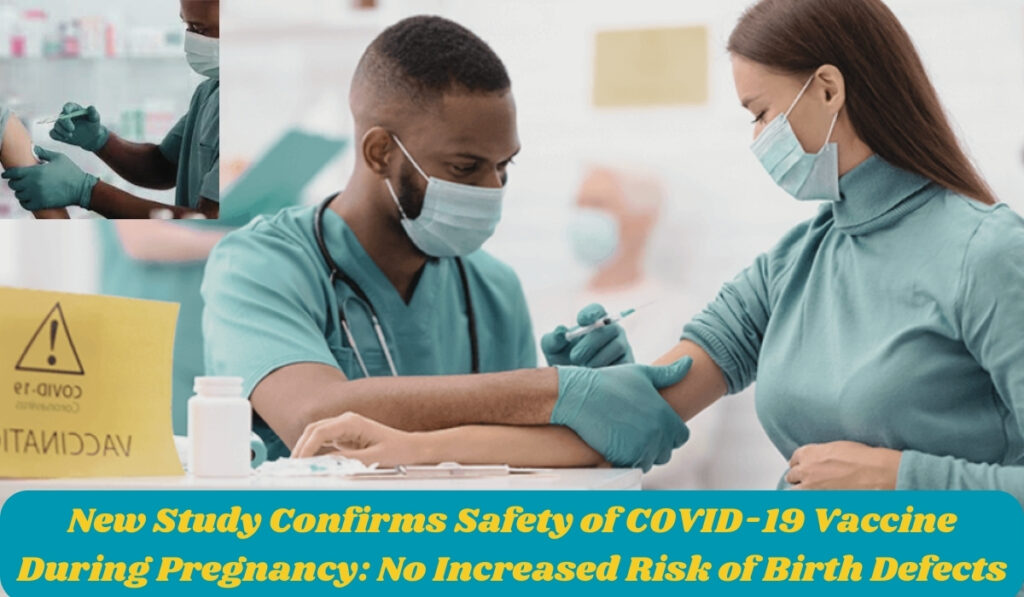Introduction
A recent study has found that pregnant women who received a COVID-19 vaccine during their first trimester did not have an increased risk of birth defects. This study is significant because it provides further evidence supporting the safety of COVID-19 vaccination during pregnancy, which has been a topic of concern for many expectant mothers. The research, published in The BMJ, utilized extensive public health registries from Denmark, Norway, and Sweden to draw its conclusions.
Methodology
Study Design and Population
Researchers used data from national public health registries in Denmark, Norway, and Sweden. The study included over 343,000 babies born to women with an estimated start of pregnancy between March 1, 2020, and February 14, 2022.
Groups Studied: The study compared three groups of pregnant women:
Those who received either the Pfizer or Moderna vaccine during the first trimester.
Those infected with COVID-19 in the first trimester.
Those who were neither vaccinated nor infected.
Data Collection and Analysis
Inclusion Criteria: The study followed each infant for at least nine months post-birth.
End Points: The primary outcome was the occurrence of major congenital anomalies, including heart, brain, eye, face, breathing, limb, kidney, genital, and gastrointestinal defects.
Adjustments: Researchers adjusted for various factors such as maternal age, smoking status during pregnancy, body mass index (BMI), socioeconomic status, and other chronic conditions.
Results
Incidence of Birth Defects
Out of the 343,000 babies, approximately 17,700 were diagnosed with major congenital anomalies.
Vaccinated Group: About 152,000 infants (19%) had mothers who received a COVID-19 vaccine in the first trimester.
Infected Group: 10,229 infants (3%) had mothers who were infected with COVID-19 during the first trimester.
Key Findings
- There was no increased risk of major birth defects for infants whose mothers were vaccinated or infected with COVID-19 during the first trimester.
- The study found no increased risk of major birth defects related to fetal deaths attributable to either vaccination or infection during the first trimester.
Discussion
Implications of Findings
These findings are crucial as they provide reassurance regarding the safety of COVID-19 vaccination during the first trimester of pregnancy. The results suggest that the benefits of vaccination in protecting both the mother and the baby outweigh any potential risks.
Limitations of the Study
The study excluded mothers from the infected group if they had a positive antigen test followed by a negative PCR test within four days.
The research did not include data on how many doses of the vaccine the mothers received.
Cases where transvaginal ultrasonography reports omitted endometrial thickness measurements or reported non-visible endometrial thickness were not included, which might underestimate the failure rate of the transvaginal ultrasonography triage strategy.
The sample did not include endometrial cancer cases not treated with hysterectomy, potentially missing young women with grade 1 endometrial cancer or those with advanced disease where surgery is not an option.
Conclusion
Summary of Findings
The study concludes that receiving a COVID-19 vaccine during the first trimester of pregnancy does not increase the risk of birth defects. This supports current recommendations from health authorities, including the CDC, that advocate for the vaccination of pregnant women.
Public Health Impact
The findings of this study are a significant addition to the growing body of evidence demonstrating the safety of COVID-19 vaccines during pregnancy. They highlight the importance of vaccination in preventing severe COVID-19 outcomes for both mothers and infants and support public health efforts to increase vaccine uptake among pregnant women.
References
- The BMJ Study: BMJ
- Centers for Disease Control and Prevention (CDC): CDC
- National Institutes of Health (NIH): NIH
These references provide access to the primary sources and additional information on the study and related topics.

